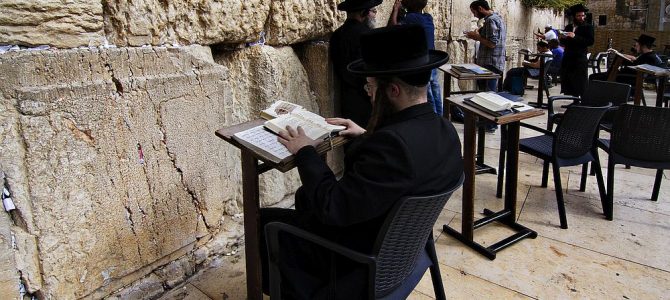
On Wednesday, the UNESCO World Heritage Committee will vote on a resolution that denies the historical ties of the Jewish people to the Temple Mount in Jerusalem. As astonishing as the claim is, the resolution may well pass: earlier this month, the committee voted 24-6 in support of a similar resolution.
This isn’t the first time someone tried to rewrite the history of the Jewish people. In September 1996, British historian David Irving filed a libel complaint against Emory University professor Deborah Lipstadt and her publisher, Penguin Books. Lipstadt had published statements which portrayed him as a Holocaust denier, a Nazi apologist, a manipulator of historical fact, and an anti-Semite. Irving claimed Hitler’s Third Reich never killed 6 million Jews, and said it was his prerogative as a historian to treat that claim as fact. Her descriptions, he said, damaged his reputation as a historian.
The story of the ensuing trial is portrayed in Mick Jackson’s new film “Denial,” in theaters this week. Spoilers: Irving lost that suit. Statements aren’t libelous if they’re true, and Lipstadt’s description of Irving was indeed accurate. Evidence presented by her defense team not only showed that Irving was a racist and anti-Semite, but also exposed his irrational assertions that British Prime Minister Winston Churchill was paid off by the Jews, that the Jews controlled many postwar Communist regimes, and that the world was controlled by a vast Jewish conspiracy.
Falsifying History Is a Major Offense
Yet the nature of Irving’s libel suit put history on trial: to prove Irving was indeed trying to rewrite history, Lipstadt’s defense was forced to prove that the Holocaust indeed occurred. So, examining Nazi building plans for gas chambers and statements from Nazi leaders describing their use, her team prevailed and maintained the record of history without blemish. If they hadn’t, Irving’s case would have laid a groundwork of precedent for future Holocaust revisionist claims.
History is the record of human events. It is the sacred story of the world, and for the sake of humanity, its record must not be tampered with. In court, witnesses are charged with perjury when they lie under oath. Journalists’ careers end when they fabricate stories. But there is no institutional correction for historical revisionists outside of dispute from colleagues: historians and heritage preservers hold the record of time in their hands.
Revisionism isn’t limited by words. When the Islamic State rose to power in 2014, they smashed ancient Iraqi relics and blew up historical sites and artifacts, erasing from historical records anything inconsistent with their ideology. This cultural destruction tactic asserts dominance by deleting evidence of victim’s humanity. Historical revisionism is the ultimate delegitimization of identity.
This week’s vote by the UNESCO World Heritage Committee’s is another judgement that will either preserve historical record or damage it. The city of Jerusalem was founded by the Jewish King David. The Temple Mount is the holiest site in the Jewish faith because it is the remnant of the place where the Ark of the Covenant rested—where God himself would dwell with his chosen people. To say Jerusalem has no Jewish significance is like saying the pyramids have no connection with Egypt.
Denial Is Dangerous
Over the years, the site has of course gained huge significance for both Christian and Muslim faiths. Jesus Christ taught in the temple and performed miracles in the Old City surrounding it. The temple was destroyed by the Romans in 70 AD and after several invasions and the founding of Islam, the stunning Dome of the Rock was built, followed by the Al Aqsa Mosque—making the Temple Mount also one of the holiest sites in Islam.
The city is sacred to all three religions: denying the roots of Jewish heritage in the Old City of Jerusalem preposterously ignores historical fact, just as would an explicit denial of Christian or Muslim ties. The UNESCO resolution is an attempt to rewrite history, and to expunge Jewish identity from its holiest site.
One has only to stand before the tables of the moratorium in Sachsenhausen concentration camp or peer into the gas chambers at Majdanek to be confronted with what it means to erase the identity of a race of human beings.
Denial does not change realities of the past. It can only preclude posterity from learning from the mistakes of their predecessors. That’s why we preserve history: to learn from it.
Around the world, museums of the Holocaust contain endless piles of victims’ shoes: little scalloped leather shoes of young girls, fine brown shoes of businessmen dignified by success, high-heeled shoes of ladies who belonged in dance halls, not a death camps. They were murdered because they were Jews. But for historical record accurately preserved, shoes alone will be their witness.









